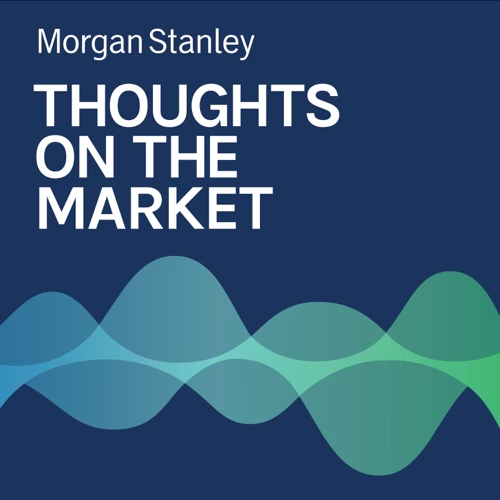
Economic data looks backward while equity markets are looking ahead. Our CIO and Chief U.S. Equity Strategist Mike Wilson explains why this delays the Federal Reserve in both cutting and hiking rates – and why this is a feature of monetary policy, not a bug.
Read more insights from Morgan Stanley.
----- Transcript -----
Welcome to Thoughts on the Market. I'm Mike Wilson, Morgan Stanley’s CIO and Chief U.S. Equity Strategist. Today on the podcast I’ll be discussing why economic data can be counterintuitive for how stocks trade.
It's Monday, August 4th at 11:30am in New York.
So, let’s get after it.
Since the lows in April, the rally in stocks has been relentless with no tradable pullbacks. I have been steadfastly bullish since early May primarily due to the V-shaped recovery in earnings revisions breadth that began in mid-April. The rebound in earnings revisions has been a function of the positive reflexivity from max bearishness on tariffs, the AI capex cycle bottoming, and the weaker U.S. dollar. Now, cash tax savings from the One Big Beautiful Bill are an additional benefit to cash flow which should drive higher capital spending and M&A.
As usual, stocks have traded ahead of the positive sentiment and the lagging economic data – which leads me to the main point for today.
Weak labor data last week may worry some investors in the short term. But ultimately we see that as just another positive catalyst for stocks. Further deterioration would simply get the Fed to start cutting rates sooner and more aggressively.
The bond market seems to agree and is now pricing a 90 percent chance of a Fed cut in September, and the 2-year Treasury yield is 80 basis points below the fed[eral] funds rate. This spread is not nearly as severe as last summer when it reached 200 basis points. However, it will widen further if next month's labor data is disappointing again.
While weaker economic data could lead to further weakness in equities, the labor data is arguably the most backward-looking data series we follow. It’s also why the Fed tends to be late with rate cuts. Meanwhile, inflation metrics are arguably the second most backward looking data, which explains why the Fed also tends to be late in terms of hiking rates. In my view, it's a feature of monetary policy, not a bug.
Finally, in my opinion, the bond market’s influence is more important than President Trump's public calls for Powell to cut rates.
The equity market understands this dynamic, too—which is why it also gets ahead of the Fed at various stages of the cycle. We noted in our Mid-Year Outlook that April was a very durable low for equities that effectively priced a mild recession. To fully appreciate this view, one must acknowledge that equities were correcting for the 12 months leading up to April with the average stock down close to 30 percent at the lows. More importantly, it also coincided with a major trough in earnings revisions breadth.
In short, Liberation Day marked the end of a significant bear market that began a year earlier.
Remember, equity markets bottom on bad news and Liberation Day was the last piece of a long string of bad news that formed the bottom for earnings revisions breadth that we have been laser focused on.
To bring it home, economic data is backward looking, earnings revisions and equity markets are forward looking. April was a major low for stocks that discounted the weak economic data we are seeing now. It was also the trough of the rolling recession that we have been in for the past three years and marked the beginning of a rolling recovery and a new bull market.
For those who remain skeptical, it’s important to recognize that the unemployment typically rises for 12 months after the equity market bottoms in a recession. Once the growth risk is priced, it’s ultimately a tailwind for margins and stocks, as positive operating leverage arrives and the Fed cuts significantly.
Based on this morning’s rebound in stocks, it looks like the equity markets agree.
Thanks for tuning in; I hope you found it informative and useful. Let us know what you think by leaving us a review. And if you find Thoughts on the Market worthwhile, tell a friend or colleague to try it out!
Senaste avsnitt
En liten tjänst av I'm With Friends. Finns även på engelska.